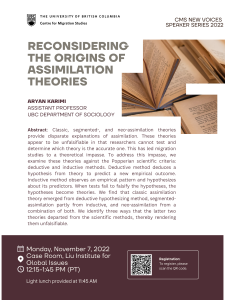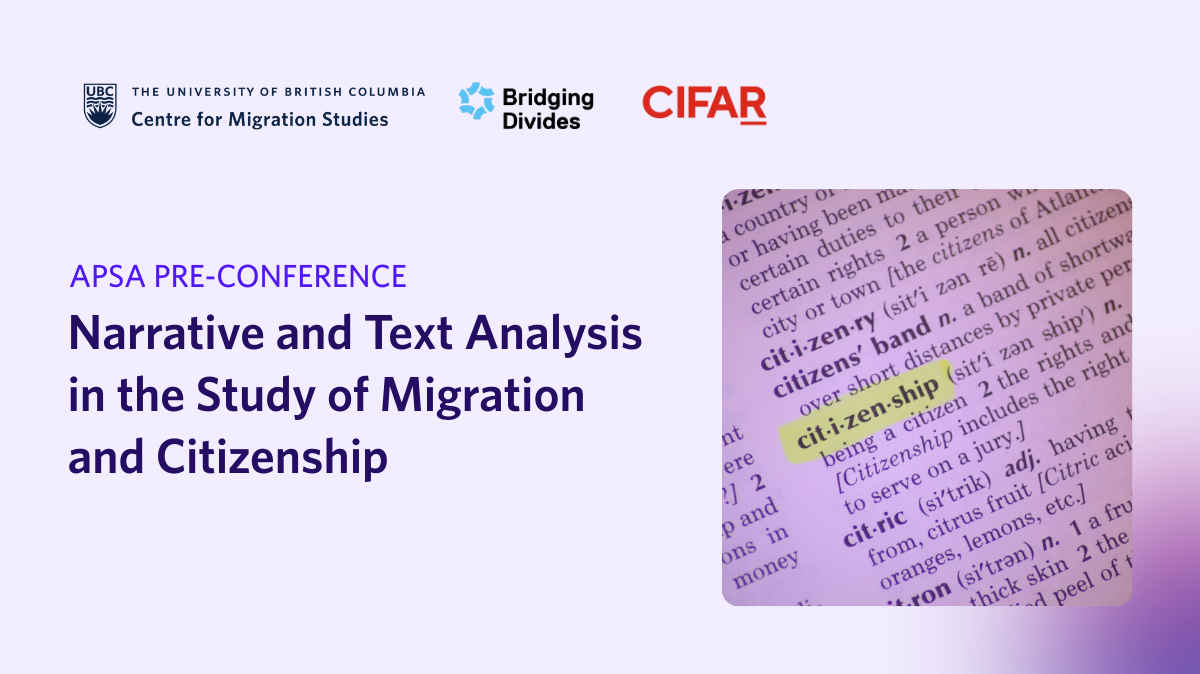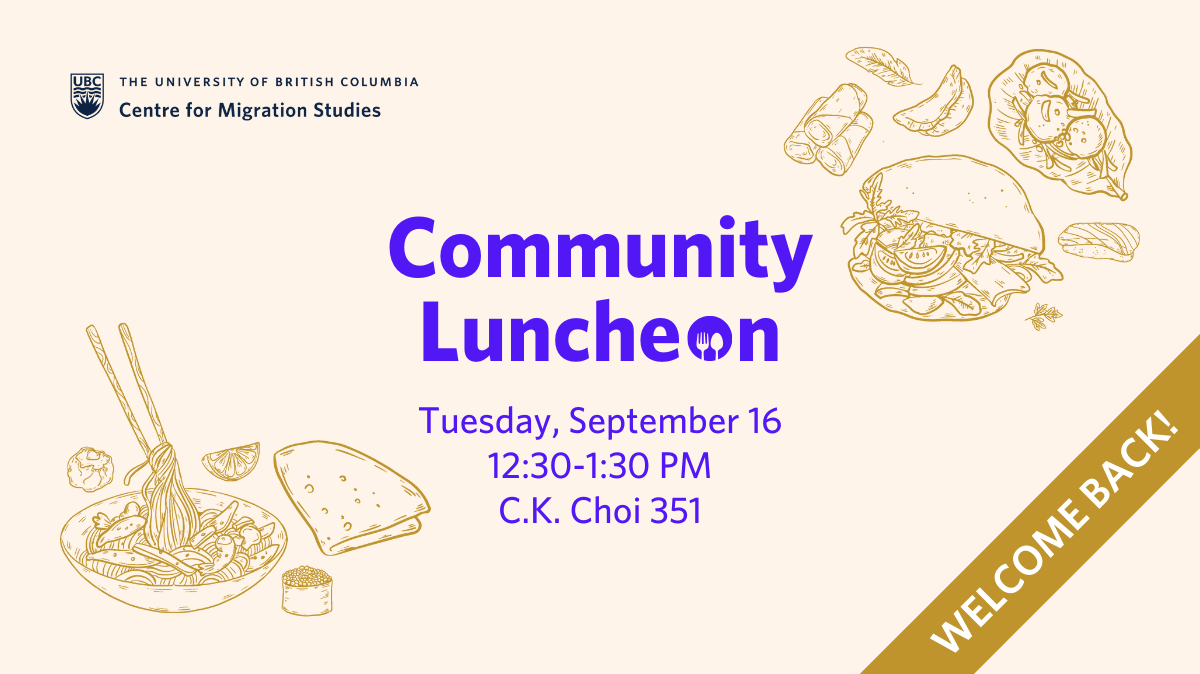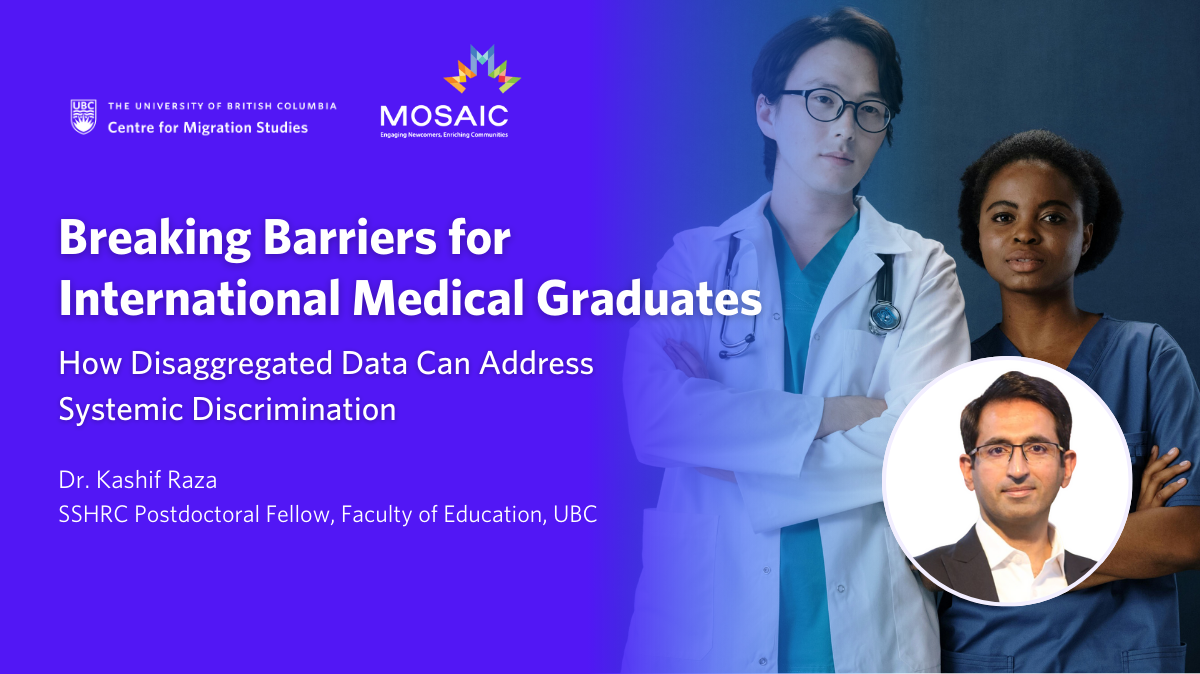Reconsidering the Origins of Assimilation Theories
Assistant Professor, UBC Department of Sociology


Free & open to the public. To register, fill out the RSVP form below.
Abstract: Classic, segmented-, and neo-assimilation theories explain intergroup relations. They, respectively, draw specific attention to ethnic pluralism, to the possibility of downward mobility into the underclass, and to upward mobility into the U.S. mainstream. These are disparate explanations and have led migration studies to a theoretical impasse. These theories appear to be unfalsifiable in that researchers cannot test and determine which theory is inaccurate and replace it with the accurate one. To understand why this is occurring, we use the Popperian scientific methods of hypothesizing as our toolkit. This method entails a step-by-step guide to deductive and inductive processes of developing hypotheses. Deductive method deduces a hypothesis from theory to predict a new outcome. Inductive methods observe a pattern in empirical data and hypothesize about the predictors of the pattern. When genuine tests fail to falsify the hypotheses over time, the hypotheses become provisional theories. We consider how assimilation theories were originally developed as a set of hypotheses and which method they used. We find that classic theory emerged from deductive method, segmented-assimilation partly from inductive, and neo-assimilation from a combination of both. We identify three ways that the latter two theories departed from the scientific methods, thereby rendering them unfalsifiable.
Moderator: Alexia Bloch (Professor, Anthropology)
Click here for other events in our New Voices Speaker Series!
Registration:
Online registration for this event is now closed. If you wish to attend, please get in touch at admin.migration@ubc.ca.


